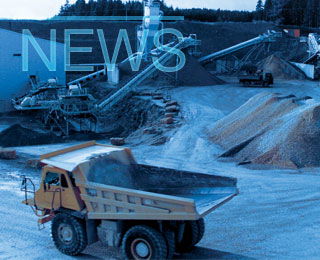The development of a railway line from a coalfield in Thar, Sindh province, to link to the rest of country, the start of a cargo train to Afghanistan and government measures to trace cement dispatches are expected to impact indirectly on the progress of the cement industry in Pakistan.
A 105km-long railway line will be laid from Chhor to Islamkot to transport coal from Thar coalfield to the port of Qasim and up-country. The railway line will also open the way for new coal, gas, urea and liquid projects, besides the construction of a new 1320MW power project in Thar Coal Block-VI, under CPEC-related projects. This will facilitate delivery of coal to the nearest cement plant drop-off points.
Meanwhile, Pakistan Railways inaugurated the Goods in Transit to Afghanistan (GITA) train on Friday. The train will transit cargo from Karachi towards Chaman and Kandahar. The inauguration of the cross-border freight train is said to be one of the major achievements during the ongoing calendar year, which has been termed as ‘Freight Year’ aimed primarily at enhancing the revenue generation via transportation of goods through cargo services between both countries.
Besides reducing the traffic flow from major roads and highways, the addition of this cross-border train in Pakistan's existing cargo fleet is not only expected to increase revenue generation, but it is said to also help in curtailing the income-expenditure gap of Pakistan Railways. If it is allowed, can be competitive ways for southern cement manufacturers to export cement to Afghanistan instead of costly land routes.
FBR eyes on cement dispatches
Last week, Prime Minister Imran Khan received a presentation on Federal Board of Revenue’s (FBR’s) performance and measures to improve revenue collection, tax reforms/restructuring of the Board. To further enhance revenue the number of measures are currently under consideration by the Khan administration include efforts to reduce to massive smuggling into the country, while heavy taxation on the real estate sector has resulted in total cessation of buying and selling of immovable properties. Taxes and market values of immovable properties would be reviewed while a track and trace system for monitoring and clearance of excise-able goods like fertilisers, beverages, sugar and cement would be implemented.

Cement demand recovering in Vietnam
Cement dispatches in Vietnam increased by 22 per cent YoY to 7.828Mt in March 2025, according to...